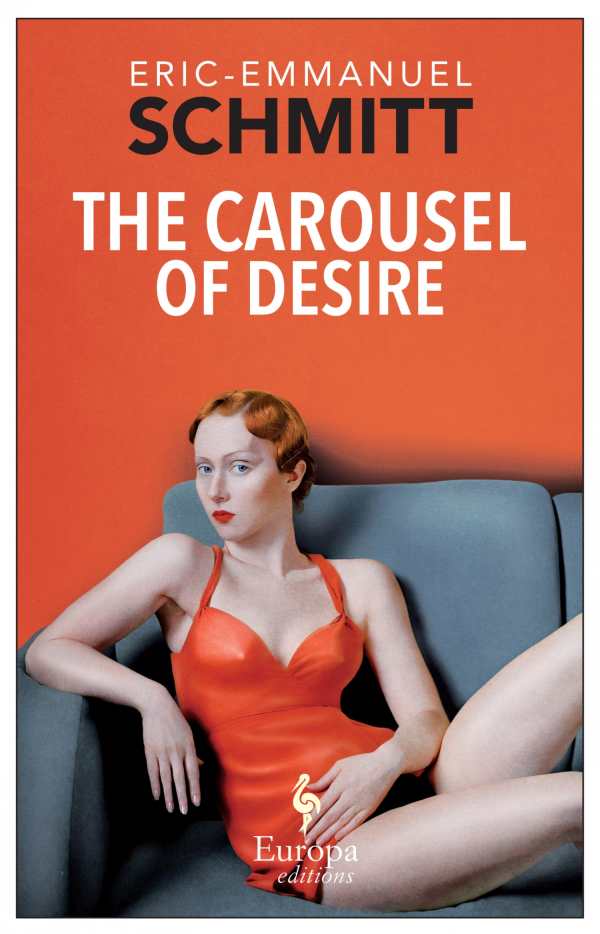The Carousel of Desire
The human dramas in Carousel reward the voyeur’s eye.
A Brussels neighborhood is the site of a grand experiment in human connection, in Eric-Emmanuel Schmitt’sThe Carousel of Desire, an inventively gratifying libertine comedy of errors.
The residents around the Place d’Arezzo bumble about their daily lives with varying degrees of resignation, licentiousness, and unanswerable need—that is, until a mysterious benefactor (or possible tormentor) aims to prod them into new territory by delivering each an anonymous letter: “Just a note to tell you I love you. Signed: You know who.”
At first, the recipients of this message respond in predictable ways: those who have given up on love already are annoyed or angry; those happy in their romantic situations are flattered; those inclined to guilt feel that, as well. But then the notes prompt movement: Patricia, who hates her body and loves the Adonis who cares for the courtyard, is delighted to find that he desires her back; Nathan and Tom, dancing around their affections, feel encouraged and solidified by the sentiments, and take next steps in their relationship.
But no one can be forced into happiness, as the author of these notes—who sees much, but cannot see all—soon learns. Piece by piece, couple by couple, the neighborhood rebuilds itself in unexpected new ways.
The gift of The Carousel of Desire exists in the vividness of its prose: in its hungry explorations of wantonness unfettered, or in the bemused unpacking of the neuroses of those who feed off connection, but who never see far beyond themselves. Political families delight themselves with their own cleverness; artists in love are impressed by their ability to adapt. Bodies contort to meet unexpected needs, and lips come together in unhoped-for affection. Love, sex, divorce, birth, and death: the cycles of human lives are covered in startling and sensitive ways.
Language throughout is playful and provocative, and even Schmitt’s most self-consciously shocking characters never cease to surprise. The human dramas in Carousel reward the voyeur’s eye, producing a mixture of vulnerability and salaciousness, cruelty and kindness, that is continually compelling. This monumental novel is satisfying at all turns.
Reviewed by
Michelle Anne Schingler
Disclosure: This article is not an endorsement, but a review. The publisher of this book provided free copies of the book to have their book reviewed by a professional reviewer. No fee was paid by the publisher for this review. Foreword Reviews only recommends books that we love. Foreword Magazine, Inc. is disclosing this in accordance with the Federal Trade Commission’s 16 CFR, Part 255.

